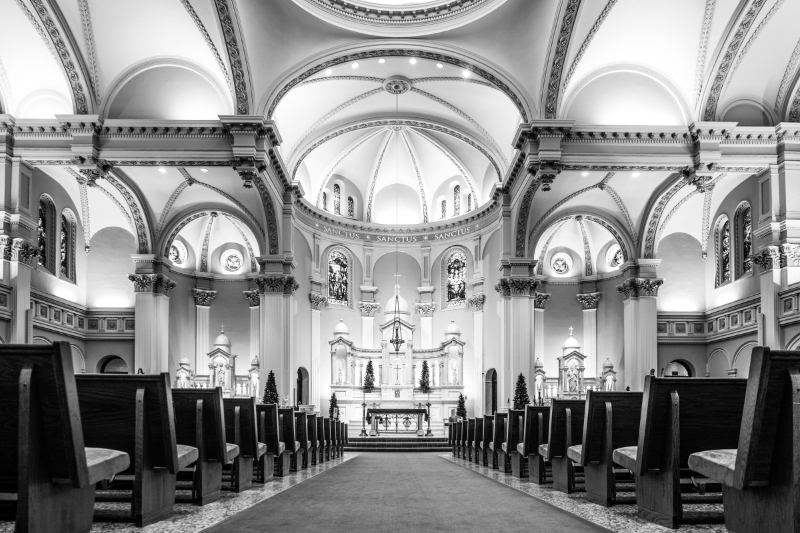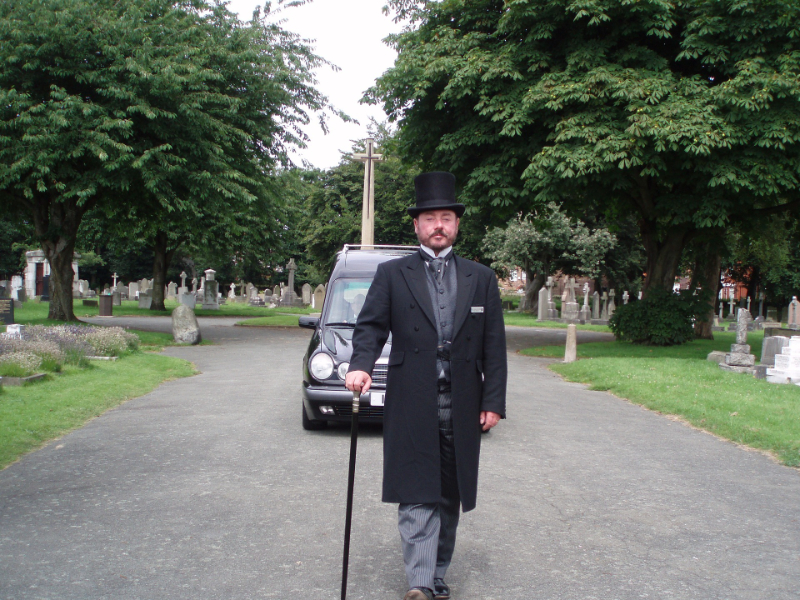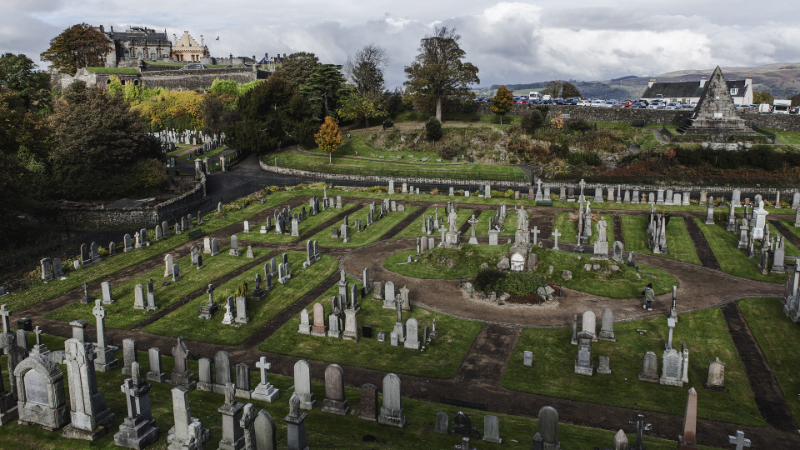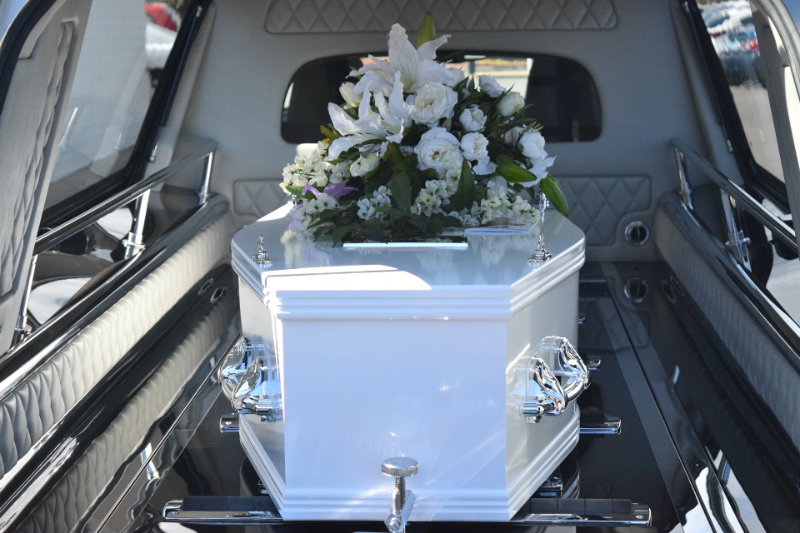Are you unsure what happens at a funeral? We look at what happens on the day of a funeral service. Find out what to expect during the service.
What happens at a funeral?
Funeral services worldwide are ceremonies that help honour the life of someone who has recently died in accordance with their will and final wishes. As Funerals are seen as one of your religious sacraments, those of a specific faith tend to have their funerals held in places of worship.
A funeral or memorial service is curated using the will, the family's preferences and advice from professional funeral directors. Once the funeral ends, the family member is typically cremated or buried in a natural burial ground or a religious cemetery, depending on the wishes and beliefs of the deceased.
Contact your local funeral directors using their numbers and firm reference numbers for further information on the details of the entire ceremony to begin funeral planning.
Who walks in first at a funeral?
Your loved one will be transported by the funeral directors from the funeral home or the family home to the religious venue of your service in a beautiful traditional hearse on the day of the ceremony.
Many local funeral homes have a vast network of vehicle providers that supply unique or traditional travel arrangements, such as motorcycles, horse-drawn hearses, VW campervans, 4x4 Land Rovers and many more.
The officiant, such as a priest, funeral director or celebrant, will lead the procession into the funeral location, followed by the coffin held up by pallbearers and the family next.
Who sits in front of a funeral?
At the front of the church, the crematorium, or another place of worship, will usually be the loved ones' closest friends and family so that they are nearest to the altar, coffin or podium should they wish to make a eulogy or recite a prayer.
However, the decision of who sits where is ultimately put upon the family or whoever is closest to the deceased.

What happens at a funeral service?
Each funeral is different; no matter the religion or loved one, the order of service will vary, and its content will depend on the deceased or family member's personal requests.
You typically have control over songs, poems, prayers and a selection of readings throughout the funeral ceremony; however, more religious ceremonies prefer you to curate a collection of hymns instead of pop songs, yet you may get away with ballads in some circumstances.
With that being said, many funeral services across the country have a familiar layout:
Funeral procession – The coffin is processed in the hearse from the funeral home to the funeral where the service takes place, and the pallbearers will then carry it into the church or venue.
Ceremony – The ceremony will typically take from 30 minutes to an hour, led by a celebrant or a religious member of the clergy. However, depending on the requests of the family or deceased, or the specific religion they practice, the service may be longer
Committal service – Once the ceremony has finished, in a religious service, there may be a committal service where your loved one will be taken to be buried or cremated, perhaps at a different location or the same location.

What happens on the day of a funeral service?
The funeral procession
When the sad day of the funeral arrives, the chosen funeral directors will carefully place the coffin with your loved one inside in the hearse, driving them slowly away in a procession to the church or crematorium with guests following on foot or in cars to join the ceremony.
The hearse is always followed by cars with attended guests, usually the immediate family and close friends of the person that has died, as this is seen as the most respectful way.
Often flowers and other floral tributes are placed in the hearse from the closest family members or near and dear friends, which is why funeral directors will supply chauffeured cars to lead the procession as this puts on display all the tributes.
Professional funeral directors on foot lead processions at the start and upon arrival at the church or crematorium. Immediate family partake in the procession, and other mourners will arrive at the venue ready for the beginning of the service.
The funeral procession will allow you to arrive at the chosen venue in time to greet your guests and attending mourners that get to the funeral venue in advance.
Cremation
Cremations can be utilised for secular ceremonies or provide religious services for all existing faiths, and you can select crematoriums yourself, or your funeral director can recommend one most suitable for your ceremony venue location.
You may also choose a place and have your loved one cremated after a full service at a place of worship, such as a church, temple, etc.Inside the creme, your coffin will be placed onto the catafalque by the pallbearers or funeral directors and later carried into the church or crematorium.
A celebrant or clergy member then leads the ceremony, yet anyone close to the dead can perform a funeral, as they are incredibly personal services. There are usually readings, hymns, funeral poems, eulogies, and songs played alongside videos, pictures and slideshows that you can show.
After a crematorium service, the coffin is usually obscured with a large curtain before the cremation for dignity purposes, especially in the event of an open-casket funeral.
Open-casket funerals aren't as common in the UK, yet it depends on the religion you practice and the cultural traditions your family come from. Loved ones can collect the ashes a few days after the funeral.

Burial
Once your funeral procession has finally arrived at the cemetery or burial ground, your loved one's coffin will be slowly and carefully removed from the hearse by pallbearers and skilfully placed on top of planks that sit over the graveside.
The mourners can surround it during the prayers to throw flowers and soil or have any poems read and led by the celebrant. If the funeral is a religious service, it is most likely to include prayers for the deceased, which will be said before or whilst the coffin is gently lowered into the ground.
The burial aspect of the funeral service generally lasts a few minutes; it is the quickest part of the service, especially if the weather conditions aren't the nicest; it is something that must be done properly, respectfully and quickly.
However, if the funeral you desire is an Eastern Orthodox or Catholic funeral, it will usually be followed by committal services which are more formal or longer.
The reception or wake
Once a funeral service has finished, many friends and families of loved ones like to hold a funeral reception with catering so that their guests and mourners can gather and celebrate the life of those that have passed.
The reception is often referred to as a wake, and it is also an appropriate time for those who weren't able to attend the funeral service, for example, younger children, to attend and reminisce and celebrate the life and death of their friends and loved ones.
You can choose whether to have the reception a few hours later or immediately after the funeral. Families can hold it at any venue that offers catering, or you may host it at your family home; a wake typically lasts a few hours, with mourners able to depart in their own time after food, drinks and paying respects.
How long is a funeral service?
Many UK funerals will last approximately an hour, which is the length of an ordinary mass ceremony.
However, other religions may have funerals that last several days to celebrate life over a more extended period.
Some families may choose to have direct cremations that require no additional service; it all depends on what you're looking for.
Many come straight from mass and have a few words said, and a song played to pay respects and spend time commemorating their life before leaving.
The average for burial and cremation is around an hour long, especially if it is within a short distance.

How long does a cremation take?
Crematoriums offer a complete service for a funeral of approximately 40-45, allowing time for your guests to arrive at the chapel and pay their respects before leaving so that other services can go ahead.
You'll often find that some crematoriums offer longer services and some shorter; however, be mindful that it may cost you a tad extra to book extra time to say your goodbyes, perhaps for sermons, prayers or poems from family members.
How long does a burial last?
Funeral services coupled with a burial typically take at least an hour; however, you must always factor in the duration it will take for your friends, family members, religious leaders and funeral officiants to arrive at the burial place.
We also recommend considering whether there are any formal religious ceremonies, as many practices vary in length of the celebration.
For those partaking in a traditional Christian or Catholic burial, you are likely to first have a formal funeral service held at a chapel or church, of which the burial will often take place in the churchyard; if this is the case, the duration will be pretty low.
Alternatively, suppose the church you have your ceremony doesn't provide a ceremony, or you wish to have your loved one buried in another natural burial ground with other relatives. In that case, you will have to factor in more time to get from one location to the other without missing anyone.
If you are planning a funeral in Essex or the surrounding areas, we provide horse drawn carriages for just such occasions.
We offer Horse Drawn Funeral Carriage in Essex and London. Visit our site to book your funeral transport hire.

